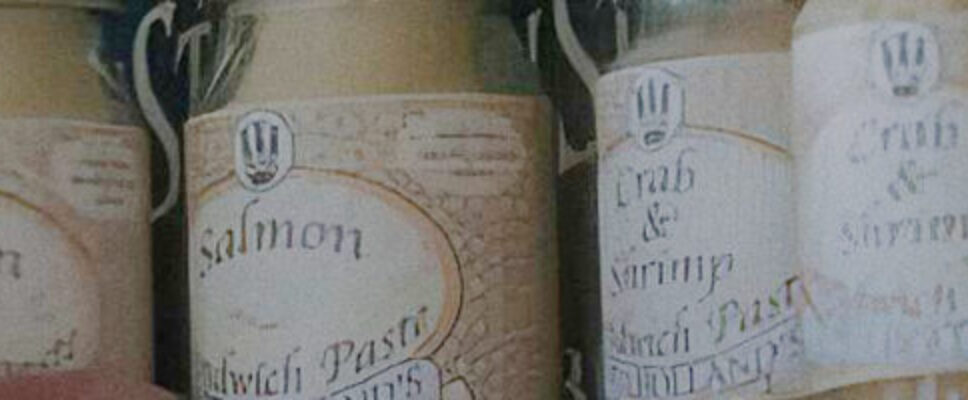Teresa Reviews “Sad Cypress” (2003)
Teresa reviews “Sad Cypress” (2003) and thought highly of this tale of hot and cold love, great expectations and poison most foul.
Fidelity to text: 4 poison bottles
![]() Elinor’s not just in the dock; she’s convicted of murder so it’s a race against time.
Elinor’s not just in the dock; she’s convicted of murder so it’s a race against time.
Quality of film on its own: 5 poison bottles
Read more of Teresa’s Agatha Christie movie reviews at Peschel Press.
Also, follow Teresa’s discussion of these movies on her podcast.
“Come away, come away, death,
And in sad cypress let me be laid;
Fly away, fly away breath;
I am slain by a fair cruel maid.
My shroud of white, stuck all with yew,
O, prepare it!
My part of death, no one so true
Did share it.”
Feste, Act II, Scene 4 of Twelfth Night by William Shakespeare.

Elinor is passionately in love with Roddy (renamed Winter in the film; a far more appropriate name) but while he’s fine with marrying her, he’s not nearly as devoted. The novel goes into detail about how Elinor keeps her passion under wraps, keeping Roddy guessing as to the true extent of her feelings. She intuitively understands that if she lets him know how deeply she adores him, he’d reject her.
“Some women are so – oh, I don’t know – so damned possessive – so – so dog-like and devoted – their emotions slopping all over the place! I’d hate that.”
That’s Roddy confirming her suspicions. Rupert Penry-Jones plays Roddy perfectly. He’s tall, blond, fastidious, and bloodless. Think of a scentless white rose: beautiful but without fragrance, it’s not sensuous.
Elinor appears to be equally cool. It’s a façade, a way to keep control over herself and what must be disconcertingly unruly emotions.
Agatha did something unusual by making the novel a “damsel in the dock” story. The film ran with the concept, making the ending far more dramatic and the stakes higher than in the book. This change worked beautifully. In a way, it reinforces that Elinor feels everything intensely. She feels so strongly and her sensibilities are so refined that she comes to believe that she caused Mary Gerrard’s death.
She didn’t. She wanted Mary Gerrard to die, very much so. This is why Elinor suffers major guilt. She’d even commented to the shopkeeper about the fishpaste being poisonous. She prepares salmon sandwiches just for Mary, Mary eats them, and dies. Elinor’s conscience goes into overdrive and she doesn’t fight to prove her innocence.
Roddy could have done more to fight for Elinor, standing in the dock, but he’s in shock too. He’d have been happy enough with Elinor. They were engaged and would marry soon. The film implies that they’re already intimate. It also implies in the same scene that Roddy is ready to get on with the day while Elinor is still lounging fetchingly in bed. Elinor may behave coolly in public but it’s clear she burns hotter than he does.

That someone turned out to be Mary Gerrard. Mary, the gardener’s daughter, had grown up with Elinor and Roddy. She’d been in Germany for several years working as an au pair and it had been a decade since she and Roddy had last met. But when they met this time, Roddy fell head over heels in love with Mary. All that cold ice melted, because of Mary.
Not Elinor, his fiancée. She realizes almost at once that something’s up, a suspicion confirmed when she catches Roddy in the library, putting the moves on Mary.

There’s also Dr. Peter Lord. He’s got it bad for Elinor, watching her from a distance, his face full of longing. She thinks of him as a friend in the village her aunt lives in. Nothing more.

Laura Welman’s pride in her social standing prevents her from acknowledging Mary publicly. She always took an interest in Mary, educating her far beyond her station in life and, unlike typical village girls, inviting her protégé into the manor on a regular basis. She doesn’t make a will because making one would be tantamount to admitting she would die. No will, no provision for Mary, despite how much Laura must have loved her. As Laura’s next of kin, conscientious Elinor inherits everything. She makes provisions for Mary, despite knowing Roddy adores Mary in a way he never adored her.
But when Mary dies of poisoning, Laura’s body is exhumed and it turns out she’d been poisoned too. Who would want to murder a woman with one foot already deep in the grave and the other foot slipping? Elinor hated Mary for innocently capturing Roddy’s heart, but she had no reason to poison her aunt unless it was to prevent her giving all the money to Mary.
She’s arrested and the case against Elinor becomes increasingly black. She had the opportunity to steal the morphine, she’s cold and collected, she questions the grocer about poisoned fish paste, she’s the one who lost her fiancé to the gardener’s daughter.
The film opens with Elinor in the dock, listening to the charges brought against her. As the prosecuting barrister presents the case, the film slips seamlessly back into the past. Poirot’s brought in early but it fit. He was already in the village testifying in another case. When Dr. Lord and Elinor tell him about the anonymous letter, he’s more concerned than either of them. As the case moves forward, he investigates, thinks, questions, and eventually discovers the truth.
She’s convicted and sentenced to death.

The ending implies that Elinor won’t want for love. Her champion, Dr. Lord, is waiting for her. Roddy, on the other hand, is alone. No Elinor, no Mary, and no one else will come along and unthaw his heart.

